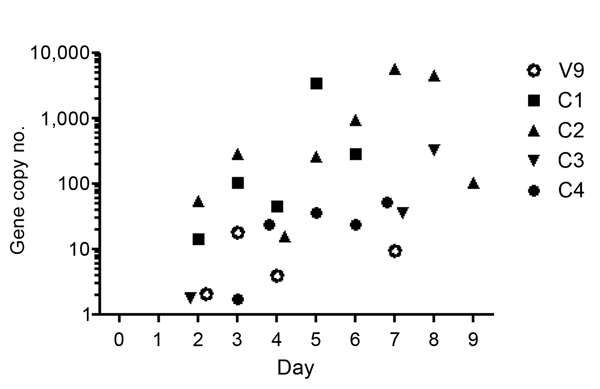Volume 20, Number 3—March 2014
Research
Hendra Virus Vaccine, a One Health Approach to Protecting Horse, Human, and Environmental Health
Figure 2

Figure 2. Scatter plot showing quantitation of the Hendra virus N gene in nasal swab samples from 1 vaccinated horse (V9) and 4 control horses (C1–C4); controls were challenged but not vaccinatedDays represent days after challenge.
1These authors contributed equally to this article.
Page created: February 19, 2014
Page updated: February 19, 2014
Page reviewed: February 19, 2014
The conclusions, findings, and opinions expressed by authors contributing to this journal do not necessarily reflect the official position of the U.S. Department of Health and Human Services, the Public Health Service, the Centers for Disease Control and Prevention, or the authors' affiliated institutions. Use of trade names is for identification only and does not imply endorsement by any of the groups named above.